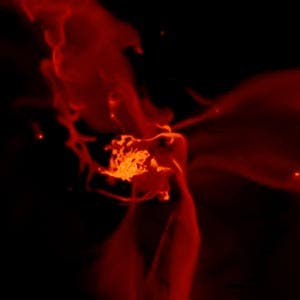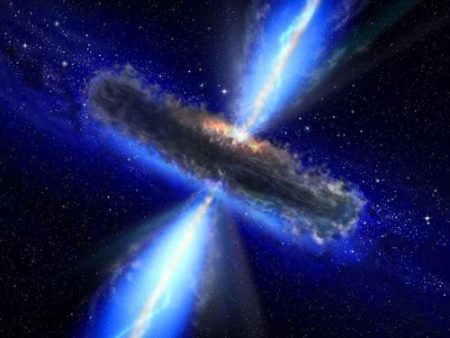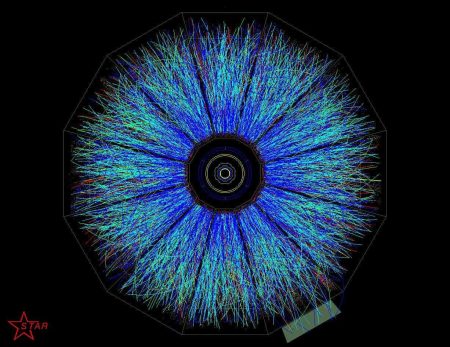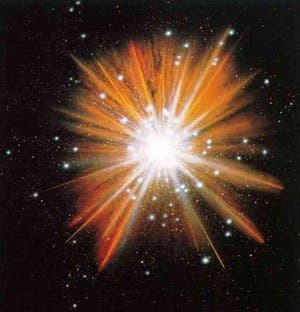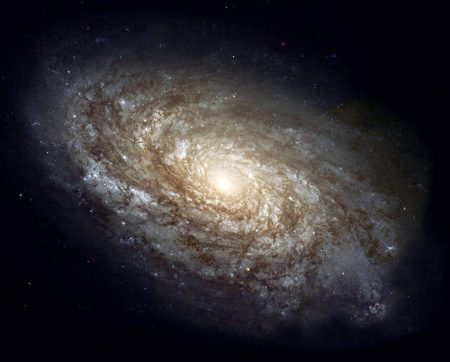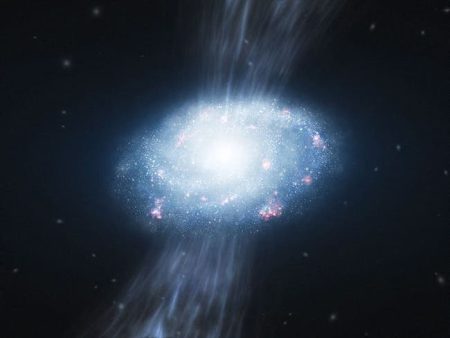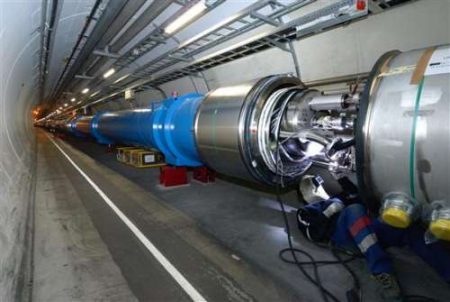Browsing: Big bang
One of the fundamental backbones of the Big Bang theory states that after the rapid expansion of the Universe only the lightest elements were formed. A group of scientists stumbled across an amazing discovery recently when they found a gas cloud dating from the time of the early Universe exclusively made out of hydrogen and helium, proving […]
Astronomers have discovered the largest body of water so far known, a reservoir of water floating in space around a ancient distant quasar, holding 140 trillion times the mass of water in the Earth’s oceans. Remarkably enough, the find was dated as being 12 billion light years away, only 1.6 billion light years farther from […]
The Large Hadron Collider (LHC) continues on its quest to find out exactly what happened in the first seconds after the Big Bang, unveiling what is the densest material known so far to man. Exotic densest substance Known as the quark-gluon plasma, this amazing exotic substance can exist only at incredibly high temperatures or pressures, […]
An intriguing hypothesis was brought up by Professor Bernard Carr from Queen Mary University in London and Professor Alan Coley from Canada’s Dalhousie University, who claims that some of the black holes we see today may actually be remnants of a past universe that collapsed into itself after a Big Crunch. I don’t know about […]
Yes, you’ve read that right. There are over 50 billion planets in our galaxy alone, according to the Kepler telescope, scientists now estimate that not only there are over 500 bilion planets in the galaxy, but that there are over 500 million life-cable planets out there as well. These numbers obviously come from Nasa’s own […]
When early galaxies formed, there was a surprisingly high rate of new stars being formed, which was explained by major galactic collisions; however, recent evidence suggests that in fact the answer is much simpler, and not nearly as violent. Astronomers using the European Southern Observatory’s Very Large Telescope in Chile have observed three ancient galaxies […]
The researchers and engineers operating the Large Hadron Collider have smashed together for the first time protons, in what is considered a huge step forward by pretty much everybody working at the huge physics experiment. The particles were accelerated on Monday, through the LHC’s 27 km and then ‘drove’ into each other, in an attempt […]
Keep updated
Get the latest creative news from FooBar about art, design and business.





